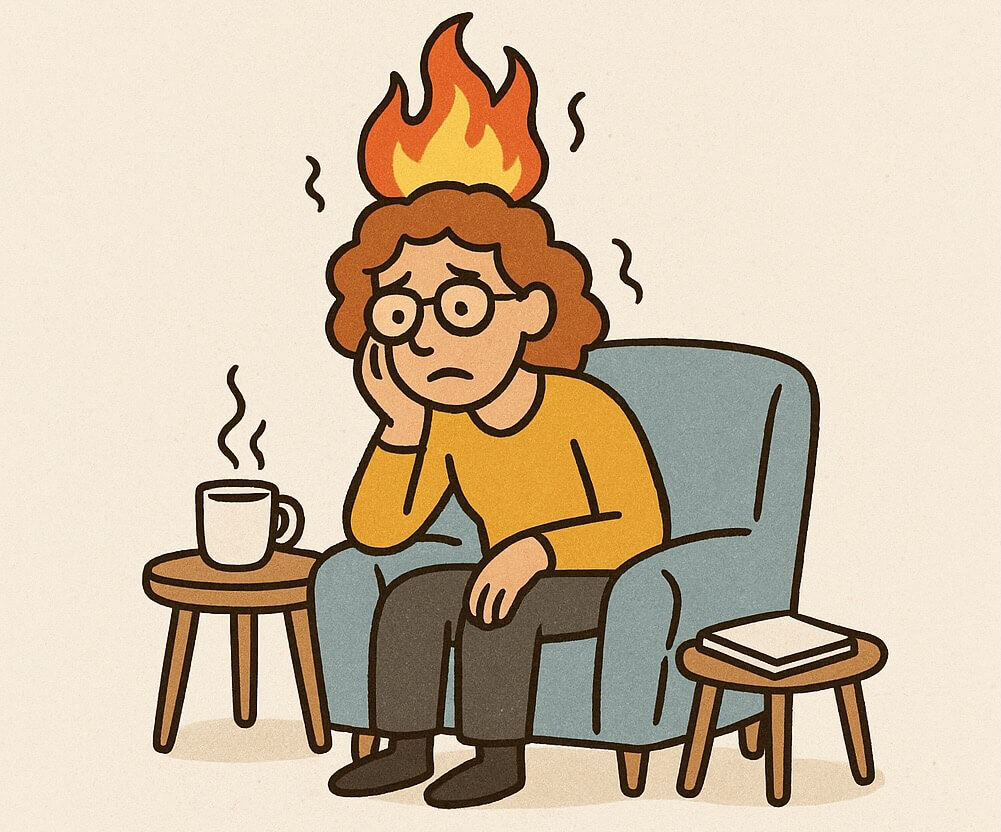
What Are Your Burnout Blind Spots?
I woke up in the wee hours of the morning, sky still fully dark, with a gasp. You know that one, right? I couldn't stop thinking about a client I'd seen earlier that week who'd told me about some super high-risk behavior. I was having anxiety symptoms in my body, and though I couldn't quite put my finger on what was going on with me, thoughts of the client and a confused sense of responsibility were keeping me from sleep.
This happened during the pandemic, and, even though I worked at a clinic with other mental health clinicians, we were quarantined behind closed doors all day. There were no lunchroom chats or other gatherings for moral and mental support. I had a distorted sense of over-responsibility that thrived in that climate. As I write about this now, from my home office where I've practiced 100% telehealth for the past few years, I realize that these isolated qualities still exist for many of us. I just have more say over whom I see in my practice, if anyone at all.
Back at the clinic, I realized that I needed help with this client concern, so I reached out to my supervisor. Discussing it with her, I recognized that the client needed a higher level of care, and I offered referrals in our next session. The client agreed with this direction of treatment and referrals, and I was relieved. Working in isolation, my helper persona, my I-should-be-able-to-handle-this-on-my-own blind spot, had run unchecked.
It was a tough setting for me, however, one of the best things that came from my time at that clinic was a CE course they provided for us on compassion fatigue. I needed my CEUs, of course, but more than that, the words "compassion fatigue" brought into my awareness another blind spot. There was this whole world of burnout that I'd been experiencing that I didn't have words for and that I was just trying to muster my way through. That's what people have to do in service work, right? Be strong and muster through?
The compassion fatigue training illuminated some key blind spot areas within my career and how I was relating to it:
1) Secondary trauma is a real thing, and it's a stage of burnout. It's what I was experiencing from the exposure to my client's traumatic stories. What a relief to feel confirmed and validated. Disturbed sleep was actually a normal response.
2) Everyone was burned out. The class I took was company-wide, and whereas I had the luxury of being a very part time contract worker who set my number of hours, most people in the course were working at least full time and trying to navigate their way through their own burnout.
3) I can help, and, more than that, being in front of the room, rather than in the therapy room, was actually more appropriate for where I was in my career.
I knew that I had tons of direct experience with creative and mindful tools, as well as facilitation skills, that I was eager to share, and that sharing these gives me energy instead of draining me. I wanted to support the folks who support so many others, including me!
I told myself the truth about my own burnout – from career and life circumstances, too (Consider: are life circumstances a blind spot in your burnout?) – and I acknowledged what I needed to thrive.
I'm grateful and excited to say that I now lead courses on burnout: its causes, ethical implications, and evidence-based remedies. It's a complex conversation to which I invite everyone who is of service – personally and professionally – to consider, especially if you're like me: someone who protects my sleep, and my overall wellbeing, with growing honesty and attention.
Join the conversation:
Click here to take Creative & Mindful Approaches to Burnout and Ethics now!